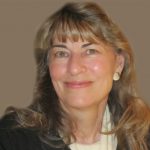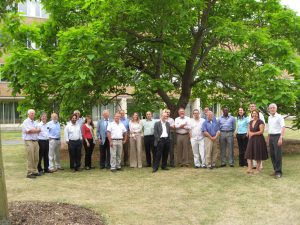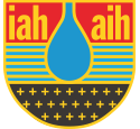“Learning is an endeavour in perpetuity. Seek and engage with many mentors – mentors open doors and pathways to invaluable life and career experiences.”
August 2019: We are delighted to share insights from Vicki Kretsinger Grabert (USA). President of Luhdorff & Scalmanini, Consulting Engineers (LSCE), Vicki has for many years been a champion for IAH and other groundwater related organisations, both within the US and worldwide, as you will discover.
Tell us a little about yourself….
 I grew up in northern California and throughout my life I have been surrounded by family, friends, colleagues, peers, and persons interested in water resources, and especially groundwater. My dad worked for California’s Department of Water Resources (DWR) for 39 years, and my brother, Carl, a fisheries biologist, recently retired from the U.S. Bureau of Land Management in Fairbanks, Alaska. When my brother and I were young, my dad would round up our family for outings with other DWR families in Yosemite National Park to camp and hike and to ski in the Lake Tahoe area. We were also camping frequently at future reservoir sites. In later years, my dad and I would spend a week every summer backpacking above the treeline, “peak bagging” mountains in the High Sierras, and glissading on remnant snow patches. When I began college, I knew water was “in my blood”, and I studied water resources, water quality, and environmental toxicology as an undergraduate at the University of California at Davis (UCD).
I grew up in northern California and throughout my life I have been surrounded by family, friends, colleagues, peers, and persons interested in water resources, and especially groundwater. My dad worked for California’s Department of Water Resources (DWR) for 39 years, and my brother, Carl, a fisheries biologist, recently retired from the U.S. Bureau of Land Management in Fairbanks, Alaska. When my brother and I were young, my dad would round up our family for outings with other DWR families in Yosemite National Park to camp and hike and to ski in the Lake Tahoe area. We were also camping frequently at future reservoir sites. In later years, my dad and I would spend a week every summer backpacking above the treeline, “peak bagging” mountains in the High Sierras, and glissading on remnant snow patches. When I began college, I knew water was “in my blood”, and I studied water resources, water quality, and environmental toxicology as an undergraduate at the University of California at Davis (UCD).
Following a few years working, in 1981 I had the good fortune of meeting Joe Scalmanini, who was teaching courses at UCD and, as a founding partner, actively establishing a new California groundwater consulting business (Luhdorff & Scalmanini, Consulting Engineers; LSCE). He took time late one evening to counsel me on career paths. His insights and experiences led to my decision to return to UCD for graduate studies with an emphasis on groundwater hydrology and water quality. Joe also connected me to my advisor at UCD, Professor Verne Scott, who excelled in applied engineering and water science and had a legacy of mentoring students. While at UCD, I worked as a Research Assistant and received grant support for research on groundwater quality on California’s coast on behalf of the University Public Service Research and Dissemination Program and the Kellogg Foundation. While doing field work for my master’s degree, I began doing aquifer testing at well sites where LSCE was concurrently evaluating groundwater management approaches to avoid saltwater intrusion. Initially, my graduate program and volunteered field work were mutually beneficial to me and LSCE, but I became a part-time groundwater hydrologist and then a full-time hydrologist with LSCE. In 1991, I became a partner in the firm. Thirty-six years later, this is now my eighth year as the company’s President.
Gene Luhdorff, founding partner of LSCE, was heavily involved in the California Groundwater Association, an organization founded in 1948 and comprised mostly of drilling contractors. In 1989, Gene encouraged my participation in the technical division of this organization. This was the beginning of my volunteered time and involvement in numerous groundwater-related organizations. In 1992, I became the Founding President of the Groundwater Resources Association of California (GRA) and member of the Board of Directors for 23 years and now Emeritus Director for the past 6 years; member of the University of California Center for Water Resources Center Advisory Council (1994-2009); Board Member University of California Water Resources Center Archives (2009-2011); Past Chair and Board member of the Association of Ground Water Scientists and Engineers (AGWSE), division of the National Ground Water Association (NGWA) (1998-2007); and Executive Committee of the United States National Chapter of the International Association of Hydrogeologists (IAH USNC) (2009-present). In 2010, on behalf of GRA, I helped launch a new Contemporary Groundwater Issues Council. The Council consists of nearly three dozen local, state, and national distinguished executives and leaders who are providing their input on the most pressing information, education, and programming needs to address California’s groundwater challenges. I have served as the USNC Treasurer, and I am currently serving a second term as the USNC Secretary. On behalf of the USNC, I have also served as the Membership Coordinator (2009-2012) and Geological Society of America Liaison (2009-2013).
For more than 30 years, I have enjoyed working on regional groundwater resource management, groundwater quality assessments, long-term groundwater quality monitoring and protection programs, and groundwater sustainability planning. Beginning in 2011, I worked with a County Groundwater Resources Advisory Committee for two and a half years at their regular bimonthly meetings to educate the Committee on the County’s groundwater resources and to aid County staff and the Committee in community outreach and education efforts. Since 2009, I have managed groundwater-related work conducted for the Central Valley Salinity Alternatives for Long-Term Sustainability initiative (CV-SALTS), a collaborative effort initiated in California in 2006 to find solutions to the salt and nitrate problem in the State’s Central Valley. This work has included numerous technical presentations to the Executive/Policy Committee during the development of the Central Valley Region Salt and Nitrate Management Plan (2017) and the subsequent development of the Basin Plan Amendment for the Sacramento, San Joaquin, and Tulare Hydrologic Regions (approved by the California Regional Water Quality Control Board May 31, 2018 and now under consideration by the State Water Board). I am currently leading groundwater quality characterization efforts for two pilot Management Zones in the San Joaquin Valley; these pilot efforts are being funded by a State Water Board grant. A main objective of this work is to provide clean drinking water to persons relying on private domestic wells where groundwater quality is impaired with elevated nitrate concentrations. Since 2012, I have also been actively involved in work on behalf of 11 agricultural coalitions and the dairy industry addressing groundwater quality assessment and monitoring requirements throughout most of California’s Central Valley.
I co-led the Groundwater Caucus for DWR’s California Water Plan Update 2013. Since 2015, I have served as a member of DWR’s Practitioner Advisory Panel that is providing input to DWR on 2014 Sustainable Groundwater Management Act (SGMA) implementation. Our firm is involved in implementing groundwater sustainability plans in numerous California basins and subbasins.
Why did you join IAH?
When I joined IAH in July 1991, my main interest in the association was the IAH journal (then called the Applied Hydrogeology International Journal). I had received a letter from Eugene Simpson, Editor of the Journal, announcing that IAH would be launching its own official journal in October 1991. The letter (which I still have!) contained the IAH address in the UK and also the address for USA information from Patrick Leahy, then USNC Secretary-Treasurer and later the USNC Chair. Activities with the association seemed too remotely located to practically attend them. However, I recognized that IAH’s Commissions and Workgroups were accomplishing many successes directed at raising awareness and understanding of groundwater resources. I also appreciated that IAH represents a globally recognized scientific voice and develops and maintains collaborative partnerships with other scientific organizations and NGOs.
In 2001, after discussions with state, national and international colleagues, and in recognition of GRA’s and IAH’s compatible missions and objectives, a joint membership structure was proposed to GRA’s Board and the IAH USNC. I conveyed to GRA’s Board that IAH is a scientific and educational organization whose aims are to promote research into and understanding of the management and protection of groundwater for the common good throughout the world. I also emphasized IAH as a valuable forum for scientists and engineers working in the fields of hydrogeology and groundwater resource planning, management, and protection who have a broad interest in and an international or global perspective on groundwater resources and hydrogeological issues. With the GRA Board of Director’s approval, and under Lenny Konikow’s leadership as USNC Chair, a joint membership arrangement occurred for many years. Andrew Skinner (Secretary General, IAH) supported the proposed joint membership and believed that “IAH could do more for its members and for the application of our science by promoting even stronger technical interchanges between Europe, and other parts of the world like Australia where we are strong, and the US.” He also believed that “US expertise can help more than it currently does in “technology transfer” to professionals in developing nations for whom IAH membership is one of their few contacts with internationally recognised best practice.”
What are your concerns now or for the future, relating to groundwater/hydrogeology?
More than 50 years ago, groundwater was often viewed as an economic commodity. Today, this view is balanced with the recognition that groundwater resources are vital for future generations. Consequently, groundwater resources have evolved in the broadest view from being a commodity to attaining greater recognition as an essential resource. We are undergoing a transition where strategies toward sustainable groundwater resources are being advocated by the entire groundwater industry. In light of this transition, all groundwater professionals, including all interrelated water resources disciplines, benefit from opportunities to work in unison to communicate the importance of groundwater.
What three tips might you give to someone just starting out on their study or career?
Three timeless values that I wish to emphasize to students and recent graduates interested in groundwater include:
- Professionalism: Learning is an endeavour in perpetuity. Seek and engage with many mentors — mentors open doors and pathways to invaluable life and career experiences. Sharing knowledge accelerates learning for the individual and others. Professionals demonstrate the highest regard for learning and sharing when they continually apply their knowledge with quality and care in their work or research.
- Innovation: Continued relevance of the groundwater industry requires constant innovation. Keep thinking “big” ideas; something is bound to translate to a scientific or technological advancement or a new problem-solving approach. Multidisciplinary approaches will be critical for addressing the world’s ever more complex water resources problems.
- Communicate informed and responsible use of groundwater resources: Groundwater resources constitute a globally important resource. Sustaining these resources requires ongoing professional and public education and water awareness programs that ensure responsible use, management, and protection of the world’s groundwater resources. Seek ways to contribute to educational and public outreach efforts.
What has being a member of IAH brought to you?
I greatly appreciated the opportunity to participate in IAH’s Forward Look Initiative in 2010, when a group of IAH leaders met in England for several days to develop a future vision and strategies for IAH’s growth and recognition for its role in addressing challenges associated with sustaining and protecting the world’s groundwater resources.
I am honored to be serving on the IAH USNC Executive Committee. I greatly admire many colleagues from all over the world who are also friends and mentors, and in some instances co-authors (including Emilio Custodio and Ramon Llamas). Their wisdom, enthusiasm, guidance, and efforts in their research, work or volunteering endeavors have deeply inspired me and expanded my horizons to places I could not have imagined. Most of all, I am thankful for the gift of friends around the world — the “IAH family”. Through our collective efforts to give back to the science and the profession, kindred affiliations and life-long connections have been created.
Additional comments – matters you would like to raise?
I wish to share thoughts generally excerpted from what I wrote as Column Co-Chair for the introduction to the Groundwater Journal’s Groundwater News & Views Column (November-December 2016; Groundwater Management Directions: Stewardship to Sustain Our Water Resources).
“The interconnected technical, social, political, and governance aspects of groundwater management are becoming increasingly prevalent in all walks of society, including its continual presence in social media, local and regional news, and worldwide forums. “Many challenges related to achieving effective groundwater management and groundwater sustainability are not new; however, new directions, including innovations, technology, and multidisciplinary approaches increase the opportunities and potential for progress. Fundamental needs to realize such potential involve leadership and stewardship. Everyone living, working, and enjoying groundwater and other natural resources have cause to embrace groundwater sustainability as a shared responsibility. Groundwater professionals face unparalleled opportunities to contribute to improved hydrogeologic conceptualization of interconnected groundwater and surface water systems, engage in identification of data gaps at local and regional levels, promote technical advances and tools that provide greater understanding of groundwater system responses to natural and human stresses, identify strategies to increase groundwater replenishment, and contribute to education and outreach efforts that make everyone aware that they need to participate in groundwater protection to accomplish groundwater sustainability.”
Vicki Kretsinger Grabert

Vicki (sixth from left) with fellow participants of the Forward Look meeting in 2010. Many recognisable faces…



